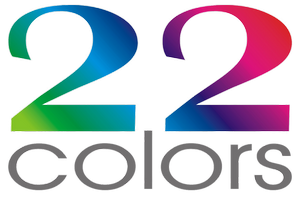
And that’s where we all have to pause for a moment, with a question like that.
What does he mean now? Because the way this word has been denigrated, labelled, pushed away and completely robbed of its meaning over the last decades, we are not really allowed to use this word without being eyed very critically.
Esoterics are just crazy people, right? That’s what’s stuck in our heads.
In the sense of this classification of writings made by Cicero, which does not go back to Aristotle himself, the “exoteric” and “esoteric” writings of Aristotle are still distinguished today in ancient studies. The “esoteric” writings do not contain secret doctrines, but only explanations whose understanding presupposes a previous philosophical education.
Wikipedia, german
What could be meant by “previous philosophical education”? In Cicero’s time, the persecution of those of other faiths was just getting started. The religious wars have never stopped. Now they only exist in our heads, but they are still in us, like a polluted seed within.
Even today, people are mentally persecuted and spiritually burned for their belief in something other than the officially communicated version.
The word esotericism, founded by our great spiritual forefathers, is now used for an active exclusion of people of other faiths into a radical corner. This often goes hand in hand with right-wing radicals and other (supposed?) scoundrels.
What words are we still allowed to use, we who look a little beyond the general and already perceive that there is much more to it than just what is taught in school? Scientific provability is always decades behind anyway.
Spiritual. Am I spiritual? Are we still allowed to use this word? Or are we also being made to feel bad about it?
Why should I not believe in the existence of chakras when I find them a) described in many forms in ancient writings of the great sages of our human history again and again, under many names and partly in other systems of thought, but somehow all very similar?
And b) if this division of our inner kundalini column into logical sections feels meaningful to me, because it allows me to describe what I feel when I do, for example, energetic exercises that can obviously help to purify and harmonise these inner energy centres?
Above all, I can feel my heart chakra very clearly within me if I imagine for a few moments how I “breathe” through this subtle inner heart centre. Then I feel something inside me, immediately….
I would describe it as a loving and comfortable and expansive feeling. In this respect, the description of the characteristics of the heart chakra fits quite well for me. What is suitable for me becomes my life experience. Step by step I am learning to perceive the other chakras better.
If I believe in something like chakras, then I get the stamp “esoteric”. This is because I believe in something that does not appear to be in harmony with either the official educational system or the currently permitted social system, although the teachings about ourselves and about the nature of our being, and also our inner development possibilities, are actually something that should have long been part of general education.
The ancient explanatory model with the chakras is still far from the infallibility of this definition of science, which everyone has recently started to follow, because of the immeasurability (or the non-recognition of the possibility of a measurability).
There is still a religious war going on, just like before. Now especially in our heads.
Can’t we manage to perceive different perspectives and presentations and descriptive forms for what we experience simply as a possible perspective, regardless of whether it fits our own view or not?
Do we need this inner defensiveness and demarcation towards people who experience and describe other perspectives, is this necessary for our best experience and survival?
Or is it not perhaps also okay if there are people who have a completely different perspective of what they were once taught? Because our belief system is based on what we have experienced and lived through in our lives.
This belief system is very flexible, it can expand in size and contract again at will, just as we like. Whereby I am not sure whether those who only believe in the material measurability of things can experience the same flexibility and stretchability.
We decide for ourselves what faith we have and what inner values we follow that best fit our life experiences at the moment, that are most conducive to our personal growth.
How we then want to name it, whether esoteric, spiritual or simply other-than-earlier-learned, is perhaps not so important.
In Gaia's multidimensional mirrors we recognise ourselves. In the background, the eternally vibrating question: love or not-love? Free of space and time, the universe asks us, sometimes wh...
This question, among many others, is what my new art projects LUNAS AWAKENING and LICHTWELTEN (light worlds) are about, two projects of the heart that belong together. In my own animated soap oper...
First version, created with DreamStudio.ai I used an AI software to show me in the standard 512 x 512 pixel format what a computer imagines under holy sacred relationship love hyperrealistic....
